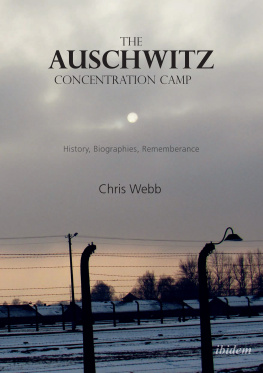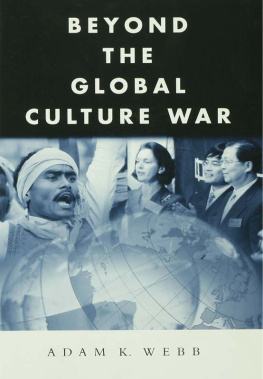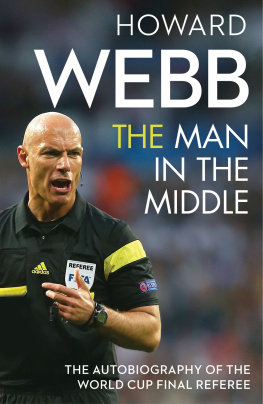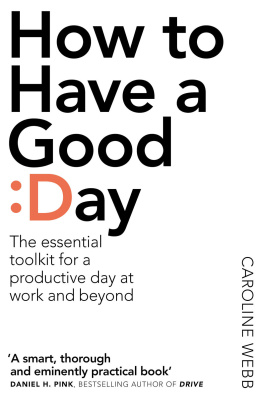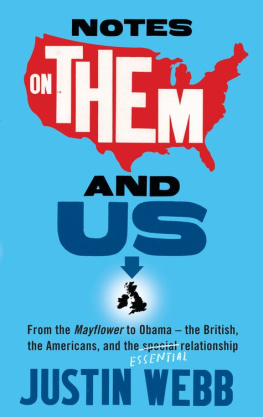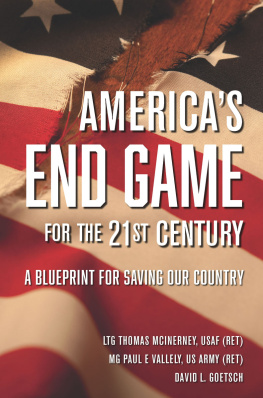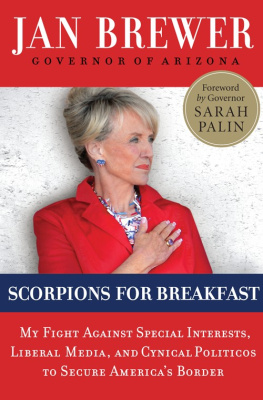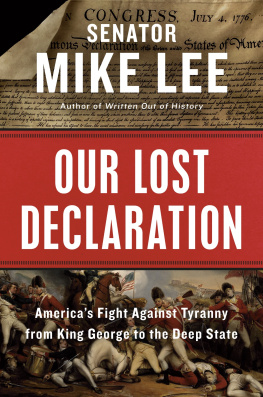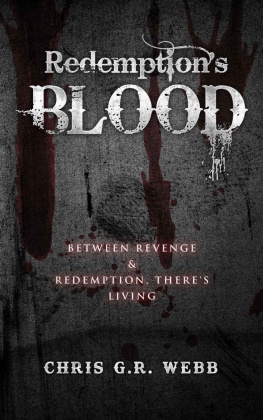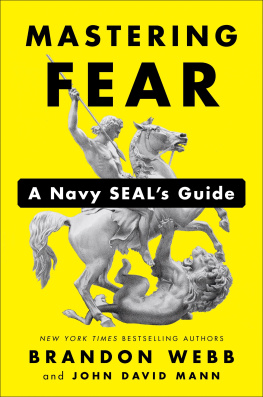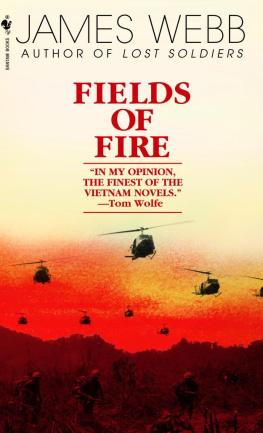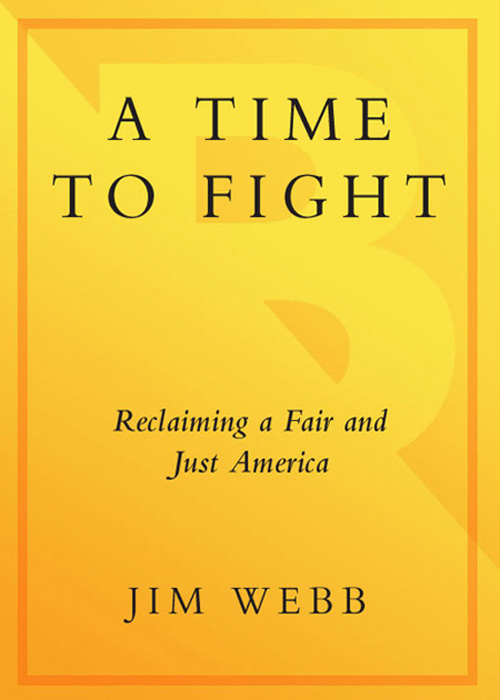
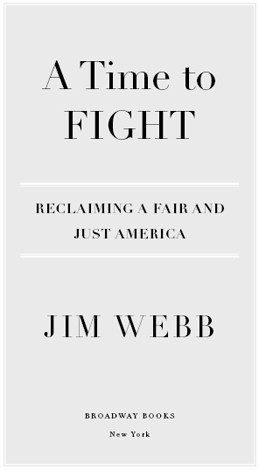
CONTENTS

PART ONE
Who Are We?
PART TWO
What Went Wrong?
PART THREE
Truth and Consequences
DEDICATION

Hong Le
Warrior Queen
Love of my Life
There is a time to pray and a time to fight. This is the time to fight.
PASTOR JOHN PETER GABRIEL MUHLENBERG: SERMON AT WOODSTOCK, VIRGINIA, 1775
ACKNOWLEDGMENTS

A special thanks to Oleg Jankovic, Walter Anderson, Paul Reagan, Jessica Smith, and Amy Hogan (Famous Amos) for providing me with their varied and much-valued insights as I wrote and re-wrote the manuscript for this book.
And, since this is a book about problems, context, and solutions, it is as good a place as any to express my admiration for, and appreciation of, the quality of service that the members of my Senate staff have been giving to our nation.

CHAPTER ONE

SCORPIONS IN A JAR
M ister President, on that I ask for the yeas and nays.
Is there a sufficient second? There appears to be a sufficient second. The yeas and nays are ordered. The clerk will call the roll.
These final words calling for a vote on the Senate floor have been uttered by the presiding officer, from a chair that oversees the entire Senate chamber. If someone were watching the proceedings on C-SPA N or from the small visitors gallery above the chamber, they would see a puzzlingly empty spectacle. In most cases, only a few senators are on the floor, having spoken while standing behind one of a hundred desks that form a semicircle in front of the elevated platform where the stiff, seemingly bored presiding officer sits behind a parliamentarian, two legislative clerks, and a journal clerk. With that, those observing might be forgiven for thinking that the debate they have just witnessed was nothing more than kabuki, a pantomime of stilted, false formality played out to deaf ears, as unheard and unremarkable as a tree falling in an empty forest.
But in almost every Senate office, indeed at almost every desk, the television sets and computer monitors are on, having followed the floor statements that precede the vote. And much more has been done, well before the speeches began. Committee hearings have been held. Memos have been written. Recommendations have been drafted. Discussions and internal debates have taken place. All that remains is for the individual senator to decide which way he or she will vote. And within fifteen or twenty minutes, depending on the rule attached to the legislation, that vote must be cast personally, a yea or nay offered to the roll clerk sitting just below the presiding officer.
Some votes are easy, either because they are perfunctory, such as judicial and military nominations that have already been extensively scrubbed by trusted committee chairmen, or because they are procedural, calling upon a senators loyalty to the party leadership, or because the philosophical arguments are clear. Some votes are enormously difficult. Many involve great stakes for the nation on issues that are far more complex than the inconclusive legislative answers that are being offered, a dilemma that many senators identify as letting the perfect be the enemy of the good. Others involve deliberate traps by clever members of the opposing side, meaningless in their true impact because of procedural gimmickry but designed to soil the voting record of senators up for reelection and to provide fresh fodder for the bombast of the talk-show crowd. Casting such gotcha votes, one cannot help but think of Rudyard Kiplings knowing lament in the classic poem If: If you can bear to hear the truth youve spoken/Twisted by knaves to make a trap for fools
I am a junior senator, ninety-fifth on the seniority list, and so by Senate standards my office in the Russell Senate Office Building is less than splendid. But having spent most of my life outside of government, I know what splendid is, and how much it usually costs if youre paying for it out of your own pocket. From that perspective, my office meets the testthe high ceiling, the ancient fireplace along one wall, the classic furniture, the modern technology evident in the top-of-the-line computer on my desk, all bought and maintained with money that came from hardworking people who have paid for such emoluments through their taxes. And especially splendid, invisible but permeating, is the history that both haunts and inspires me every day. It is not always enjoyable to serve as a United States senator. But it never ceases to be an honor.
Members of my legislative staff, led by the legislative director, enter my personal office to go over the vote and to discuss other possible votes for the day. I sit on a hard-back, wooden-armed chair, facing them as they take their usual seats on the sofa that meets the wall. Above the sofa is a large print of George Washington in military uniform, kneeling in prayer next to his horse at Valley Forge during the Revolutionary War. The print is a personal possession. I brought it to the office when I entered the Senate, as one of a host of reminders designed to focus my sense of purpose as I carry out my duties. Samuel Cochran, one of my four times great-grandfathers, served in the Virginia Line as an enlisted soldier under General Washington. He crossed the Delaware under Washingtons command. And Samuel Cochran was no summer soldier: apropos of the scene in the painting, he kept the faith with Washington and suffered through the infamous winter at Valley Forge.
Across the room, amid a wall full of family pictures behind my desk, my mothers father, B. H. Hodges, stares out at me from a small picture framed in barn wood, as he has done in every office I have occupied for more than twenty years. My grandfather is just in from his patch of truck farm vegetables, wearing knee-high working boots and bib overalls. A cloth hat is pulled low over his ears to protect him from the scorching east Arkansas sun, which has already baked his face tobacco brown. The hats brim is bent up in front, which along with his burning eyes gives him a defiant air. Defiant he was, and tragic, too. He was a fighter, a lonely champion of lost causes who himself lost everything because of the causes he championed. The picture doesnt show it, but he is lame from a busted hip, with a longtime wound that still seeps openly through breaks in his skin, and will soon die for lack of medical care.
Pictures and reminders fill my office. Samuel Cochran, B. H. Hodges, my parents, my wife, my brother and sisters, my fellow Marines from a time of brutal combat in Vietnam, my five children and one stepdaughter; those who went before me, those who were young with me and grew older by my side, and those who will be here long after I am gone. They look over my shoulder as I work. They give me balance, and also a sense of accountability. I owe those who went before me the kind of country they fought to create and wanted to perfect. I owe those who served alongside me the kind of country we tried to protect. And I owe my children the kind of country they want to see preserved and further greatened.
Next page

